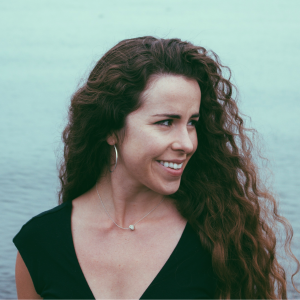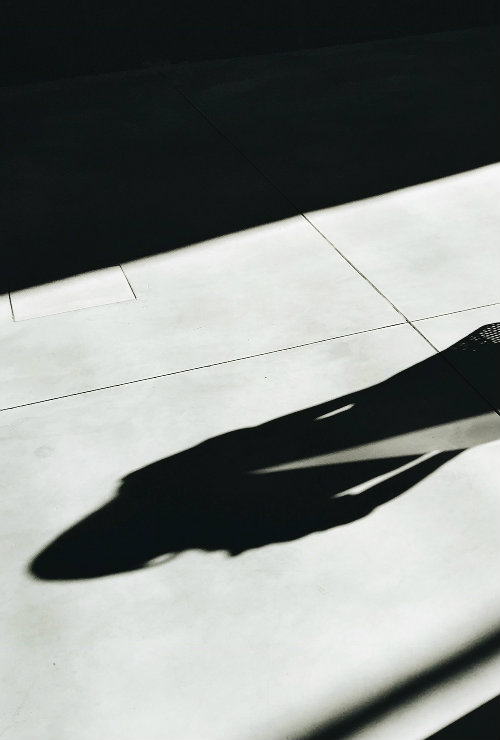EDITOR’S NOTE: This essay is forthcoming in Latina Outsiders: Remaking Latina Identity (Routledge), an anthology edited by Grisel Y. Acosta, PhD.
I don’t consider it an insult to be taken for a prostitute. They get up and go to work. That’s more than I can say for myself, some days.
So this wasn’t the first time, but it was the last. Streetlamps lit the puddles between cobblestones at the heart of Sevilla. I was in sight of the spires which guard the bones of Cristobal Colón in a cathedral built with wealth extracted from the New World, where I live.
My own people left Spain for Cuba two generations ago, and Cuba for the United States a generation after that. Just in time, too. We live in diaspora, oceans from our kin. But on this night I was less than one block from my husband and baby, both asleep. My Southern grandmother would have said I was out on a lark – my first solo drink since giving birth – an unimaginable freedom for a breastfeeding mother.
So yes, I was wearing lipstick, but not a short or tight dress. Which shouldn’t matter to your thinking, but does. Dios mío, I was post partum. I do have long, thick and wavy hair. I’m not sure whether my sensible flats worked toward or against the impression of a streetwalker, by which I mean a sex worker who finds clients a la flâneuse.
Heading back to my hotel, disappointed to see the bar across from our lobby had quieted down, I walked past a squat, bowlegged man with a paunch so taut you could bounce chorizo off it. He turned to the vieja clinging to his arm and said, ya ves como esta calle se pone por las noches. The presence of two unattached women on the same street – I wasn’t the only one – confounded this man’s expectations of curfew and chaperones. Despite the influx of international tourists, he presumed we were prostitutes, and his wife agreed. Sí.
I don’t know about that other lady, what she might have thought of me as she smoked her cigarette within the velvet ropes of a hotel reception area. She did have a knowing look – a gleam, if you will – but then, don’t we all.
How could it be avoided? Millennia of civilization have not cured the belief that every woman has a price. Men only want one thing, I was taught, and for a long time, that was truer than I wished to believe. It’s enough to harden any gaze into a weapon.
*
Take this time in Bruges, five years earlier. Travelling alone, I toured Northern Europe in anticipation of a Baltic cruise with my mother. Yes, I am privileged. There I sat in a café on a large plaza lined with flapping pennants. Down the way, canals hummed with long boats broadcasting tours in the world’s dominant languages, the clamor echoing through the basilica said to house a scrap of cloth soaked in blood, a relic of Jesus, who recognized prostitutes as worthy of respect. Few men can resist a ritualized washing, and there was that thing she did with her hair, to dry his feet.
I didn’t understand why the old woman stiffened when I helped arrange a table and chair for her, plucking them from their heavy tangle. I thought I was being nice, going out of my way for the elderly, like I was taught. She looked like she didn’t want to touch anything that touched me. I had to back away before she would lower herself into the seat, where, bearing the aura of a back porch smoke break, a server brought her a menu.
I returned to my own chair, confused, but only for a bit longer. To the other side of the café, two tables were pushed together to accommodate a large group of French and Spanish men debating soccer. A few of them started to talk about me in French. I won’t bore you with their comments about my beauty. As one of them rose to engage me in conversation, his friend caught a forearm and warned him away. Arrête-ça. Voilà, toute seule avec un livre. C’est une putain. The other man scoffed, no, couldn’t be, but his companions conferred and confirmed it must be so.
Maybe it was my copy of Lolita. I studied Nabokov for his unsympathetic narrator rendered in velvet prose. I read and wrote in cafés every morning, performing the life I had always wanted, for a week.
Except while I was projecting Writer, they were seeing Whore.
*
Later that week, I made my way to Amsterdam, where the cruise ship would set out for the Baltic. Hoping to stock up for my journey, one night I frequented coffee shops of the Red Light district, where I walked past a swarthy bouncer at the entrance of a brothel.
Te quiero apoyar, he told me. I didn’t quite register what he meant until I turned the next corner onto a bridge, where I planned to take a picture. A line of swans glided along the canal. Black waters danced with neon reflections of women behind glass.
I wanted a record of that image for myself, when I was older and less free. Instead, I recall my gradual awareness – almost like I heard it slow – as his meaning seeped into my reverie. He thought I was a freelancer, but not a journalist. A flâneuse. He wanted his cut. In exchange, his protection. From whom, I could not know. Perhaps more chilling, having recognized me as Latinx – not everyone does, unless they hear me speak Spanish to my kids – he made his approach in my mother tongue.
I met a friend of a friend for lunch the next day. She took the train from Rotterdam and led me through a warren of streets I did not recognize in daylight to a café where I could see over her shoulder, in comic relief, this very same brothel. I told her what happened. She seemed embarrassed, whether for me or her country, I could not say. Her face took on the same cast when, twenty minutes later, we happened upon a frat boy pissing into a canal.
The worst, for me, was the paranoia that followed. When I next dined alone, I fought my hesitance to bring out my copy of Lolita. My cowardice disgusted me, and yet, I did not enjoy the days that remained until I met up with my mother. They had been tainted, and I along with them.
*
Okay, you’re thinking, but of course that could happen in the Red Light district. Well, let me tell you about this other time, in a newsroom. I was working at a local daily.
I cannot remember if this incident happened on a weekday morning, or a weekend, or a late summer evening, because it was light out, but there were only a handful of people scattered throughout the newsroom. Metro was almost empty.
Passing the bullpen, a long table where editors held meetings, I fiddled with a safety pin fastening the inside layer of my blouse to the beaded skirt I inherited from my mom’s career days. I thought I was being subtle – a quick check that my shirt hadn’t crept up to expose a pale line of skin – but the A1 editor was paying attention. Though his back should have been turned, he’d swiveled in his chair to take in the view.
Why don’t I just tug down your skirt, he asked, and I paused, my face a blank screen. Now I understood what he meant when he said he wanted to work with me. A trade of the oldest kind. No, I said, and walked away. I never mentioned it to my colleagues, and he likewise pretended he hadn’t propositioned the youngest journalist on staff. At the time, I was the sole Spanish speaking reporter at the paper, a fact I only considered in retrospect.
In those days, I worked long hours. And so I often found myself among the night crew, which in Metro boiled down to the A1 editor and a few unlucky souls pressing deadline. We collaborated on dozens of stories in the years that followed. There was no choice – no way to the front page but through him.
*
My friends still tell me it’s the hair. Shiny waves long enough to get caught on chairs. Men can’t help themselves, they imply. A high school buddy asked why I didn’t cut it. Women are the only ones who make this suggestion.
I tell them patriarchy insists that unaccompanied women are for sale. What’s more, I refuse to make myself smaller for anyone. I take up space unapologetically, and it is this quality, more than anything, which compels judgment. Our society cannot fathom a woman who looks people in the eye and doesn’t say sorry.
It used to be that I invited attention of all kinds. If that is still the case, I have no idea, though I suspect it is not so. I am too busy looking down, trying to make sure my toddlers don’t kill themselves while I am not watching. It’s not paranoia. They have a tendency to run toward danger. But then, so did their mother.
I try to imagine how I would feel upon hearing my daughter’s plan to study sex work in the communist country my own parents had spirited me from just before geopolitics trapped the entire remaining populace without passports. Arrogant as only a junior year college student can be, I was too focused on my idea to care what my mother thought.
I would interview jineteras – the Cuban slang for a sex worker makes reference to a bicycle – and their johns. I would find academics, policemen and politicians willing to talk to me. I would film every interview, every street scene. I would conduct this investigation without being hurt, jailed or deported, though I didn’t have a strategy for that, not really.
I don’t recall asking for permission from my parents. I had a grant from Harvard and a visa from the State Department. I told them I was going as a courtesy. Such is my nature. It was my first experience of journalism, which I understood then as transnational scholarship. In Havana, where my great grandmother’s bones still rest in a cemetery built for nuns, and not unwed mothers, I would find out what happened in the lives of women who stayed on the island while the rest of us packed up and left.
*
Let’s skip the citations from my thesis, “Jineteras en la Habana: Constructions of Sex Worker Identity,” though I once clutched the words it afforded me – magna cum laude – as though they might protect me from being female.
What I value has long made me vulnerable, in ways I did not foresee. I spent much of my life accrediting my brain so that I would be allowed to rise from this body and be seen for my mind. And yet, as a writer, I’ve learned there is no greater wisdom than that of my womanhood. To think I almost turned my back on my own lived experience in favor of a third person I’ve never met, an omniscience I don’t believe in. Our brushes with annihilation are constant and varied and mostly unsung.
Consider the context, my childhood in the South. J.B.’s Fish Camp had a dive bar feel and a prime location on an inland waterway in New Smyrna Beach, Florida. Their motto was Southern Seafood with an Attitude.
Displayed out front was a rough wooden boat – not the hallmark of an ongoing renovation, but an unsubtle rebuke to communism. A small placard indicated that this fixture was a relic of the Cuban refugee crisis. The boat was found empty, its outboard motor still attached, contents laid to rest among Spanish galleons and other carcasses of colonial ambition.
My father’s parents, whom I loved, took me there. I asked to go. I liked the fried oysters. Manatees would swirl up to water from a hose on the docks. But what I most wanted to see was this tub, proof of what my abuela’s hard work narrative had always denied – the specter of our desperation had mis abuelos not read the signs and pulled the plug on their life in Cuba just before revolution exploded from the mountains.
To the other patrons of J.B.’s Fish Camp, the boat was a curiosity, something to gawk at while they hitched their belts, ogled the line and called themselves starving, knowing nothing of that term. Comfort numbs us even to death, and perhaps that is the true aim of capital, to relax into knowing that others are drowning, but we’ll be served dinner.
Did I dream the boat? No, but I do like to cross off a good fact. I searched for images of this business only to find a photo of a promotional T-shirt emblazoned with the Confederate flag, the name of “J.B.’s Fish Camp” parceled into the red. “Where fun is legal.”
As a girl, I learned to listen hard, for later. There I stood, hearing sport fisherman debate how to pack a cooler with dry ice without shattering the bottles. But in my mind, I was a bird, hovering above not the one boat, but the many, counting their gleams among the waves, knowing each crest requires a trough.
*
Ten years passed before I walked the streets of la Habana, where my mother and her mother drew their first breaths. I was looking for sex workers to interview. Long known as la perla del Caribe, Cuba once marketed the beauty of its women with sequins and crowns of fruit. After the Revolution, sex workers were punished with reeducation under the hot sun.
During the Special Period in the 90s, after the Soviet Union collapsed and Cuba along with it – think of a whole family subsisting for weeks on a bag of sugar – Castro defended a tide of prostitution so thick that it was undeniably a condemnation of his economic failures. Cuba might have prostitutes, he said, but they were the cleanest, healthiest and most well educated prostitutes in the world.
Talk about advertisement.
The men came in droves. It must be known, here and now, that the vast majority of Cuban women do not sell sex, putting up with all kinds of unequal marketplace exchanges but not that one. But there were many who made their peace with sex work so that they and their families could eat, and some who, fulfilling the sullen hope of their clients, carried the fantasy forward into an appearance of liking it. Maybe they did, sometimes. I would deny them nothing, they who have been denied so much.
I too have a knack for getting along with strangers. The amiable aggression, the wit that spills over, banking anger before it burns us both. Shallow tales of self display meant to create connection but not true vulnerability, unless I forget myself. Cultivating sources to be returned to again and again. Knowing how the net works. All hallmarks of a good journalist.
Sex workers negotiate these terms with much higher stakes. I’ve never had so much on the line. These women could do my job, and maybe they would have, if they’d had a chance. I met dozens of sex workers by strolling the streets alongside them, angering their pimps, who did not like competition, if only for attention. I met them late at night along Linea, saw diplomatic plates on so many stopped cars, like the Jeep that paused for me, though I crossed the street to avoid him. I met women in clubs where my activities were monitored to a degree I recognized too late.
Deep into careers of diminishing returns, like I am today, these woman needed a chance like most people need a conscience. It was the first time I professionalized the skills I built as the child of divorce, which taught me to listen for truths far beyond my time. Most of the women who spoke to me were what you’d call black, though Cuba reserves a rainbow of terms for peoples of color, the very same demographic enslaved and exploited for centuries. It’s a continuum, and I’m on it, the rich white researcher fresh off the plane from the first world.
I rented a capacious apartment within sight of the marble steps of the University of Havana, where I’d studied, transferring the credits back to Harvard. I invited sex workers to my home for stovetop coffee and filmed interviews. They brought cigarettes and patience. Their academic degrees – they had them, don’t think they didn’t – wouldn’t have been allowed to transfer, not like mine, had they been in possession of passports, perhaps the hardest thing to come by in Cuba besides money.
I was their photographic negative, exposed. In my bag, a passport and bank cards and a ticket back to the states. My camera, to the side, on its tripod, formed a triangle that made our horrible mirroring into a kind of symmetry. We are all fractals. Patterns are just a matter of scale.
Afraid to cause trouble in lives that had known enough, I’ve never screened the days of footage I shot, except to transcribe the interviews down to their ellipses, which were many. Looking into the challenge of their eyes, I knew I might not have done better, knew too that I have done worse. I’ve never given of myself as they have, not even here, with you.
These women sustained a whole economy with their sex, not just feeding their own children, but their cousins, and their cousins’ cousins. In a country divided by a dollar apartheid, jineteras were connectors, each a hub for economic activities otherwise out of reach for the people most in need. They bridged that gap with their bodies.
The economic benefits of each client were compounded, ferried by family members in informal hired cars to restaurants and hotels that flourished on and off the books. These women got their kids what they needed in a country where doctors make $25 per month and filling a gas tank costs multiples of that.
Hustlers are the truest students of history. When people treat me badly because they think I am a sex worker, I am saddened by all that is lost when we presume what any woman is worth.
*
What use might I have for my education, if not to service the economy?
In one pathetic revenge fantasy, I confront the men. All of them. When French fails to convey my fury, I switch to Spanish, saving English for last because I can. Once, in my mind, I showed the group of soccer enthusiasts my business card and website, as though I were a job applicant. I explained to them that a society can never advance when so many of its peoples persist in dismissing the intellectual capacity of women, we the only true creators.
Yet their murmurs seeded suspicions, which crept in as unease and linger as doubt. They saw in me something I suspect is true, a whisper in my heart. Might as well be. Who else has the strength to handle this world up close?
And my anger. Incendiary isn’t the word. I practice non-attachment with ire as a way of remaining in relation to people and places that have scoured me into shape. I will not be pushed to the margins, not by anyone.
In reality, I stay calm. I turn the page. I know better than to yell and spit. Such men await provocation. I will always keep walking. I learned long ago to be a student of trauma. As an unwitting participant, I can evaporate from my form and observe the scene at a remove like the scholar I was trained to be.
What trauma, you may ask, and you’d be right. I’ve shown you precious little, though now’s not the time to deal my hand. For those who don’t discuss such things with others, a primer: if you find yourself reliving unpleasant moments with the clarity you wish you could reserve for joy, that’s trauma. Doesn’t have to be the worst thing that’s happened to anyone. It just fucked you up a bit. Maybe you’ll be better for it. Such moments can be wonderful teachers.
In my own journey toward becoming, I’ve found no room for harboring. Harness the currents of life, or be drowned. I start by telling a few trusted friends. I’ve found fellowship in vulnerability. Shame ebbs, and with it, the stagnant isolation of withholding. I am propelled by the telling. And here we are, together. A fait accompli.
Give it a try? In your own way.
I’m listening.
 KRISTEN MILLARES YOUNG is the author of Subduction, forthcoming on Red Hen Press in spring 2020. She is Prose Writer-in-Residence at Hugo House, a nonprofit hub for writers. An essayist and journalist, her work has been featured by the Washington Post, Guardian, the New York Times, Crosscut, Hobart, Moss, City Arts Magazine, Pacifica Literary Review, KUOW 94.9-FM, the Seattle Post-Intelligencer, the Miami Herald, the Buenos Aires Herald and TIME Magazine. Her personal essays are anthologized in Pie & Whiskey: Writers Under the Influence of Butter & Booze (Sasquatch Books), a New York Times New & Notable Book, and Latina Outsiders: Remaking Latina Identity (forthcoming on Routledge).
KRISTEN MILLARES YOUNG is the author of Subduction, forthcoming on Red Hen Press in spring 2020. She is Prose Writer-in-Residence at Hugo House, a nonprofit hub for writers. An essayist and journalist, her work has been featured by the Washington Post, Guardian, the New York Times, Crosscut, Hobart, Moss, City Arts Magazine, Pacifica Literary Review, KUOW 94.9-FM, the Seattle Post-Intelligencer, the Miami Herald, the Buenos Aires Herald and TIME Magazine. Her personal essays are anthologized in Pie & Whiskey: Writers Under the Influence of Butter & Booze (Sasquatch Books), a New York Times New & Notable Book, and Latina Outsiders: Remaking Latina Identity (forthcoming on Routledge).
Kristen was the researcher for the New York Times team that produced “Snow Fall: The Avalanche at Tunnel Creek,” which won a Pulitzer and a Peabody. Her reporting has been recognized by the Society for Features Journalism, the Society of Professional Journalists and the Society of American Business Editors and Writers. Kristen has been a fellow at the University of California at Berkeley’s Knight Digital Media Center, the Jack Straw Writing Program, and the University of Washington Graduate School. As an editor-at-large for Proximity Magazine, Kristen helps curate literary conversations about telling true stories.
Kristen graduated magna cum laude from Harvard University with a degree in History and Literature, later earning her Master of Fine Arts from the University of Washington. She teaches at Hugo House, the Port Townsend Writers’ Conference and the Seattle Public Library. Kristen serves as board chair of InvestigateWest, a nonprofit news studio she co-founded in the Pacific Northwest. InvestigateWest’s reporting has led to the passage of fifteen new laws to improve the environment and the lives of foster families, people of color caught in the criminal justice system, health care workers, and advocates for government transparency.
Kristen will read this essay alongside other anthology contributors during AWP on Wednesday 3/27/19 at Milagro Theater in Portland, OR at 7 p.m.
Photo credit: Natalie Shields



